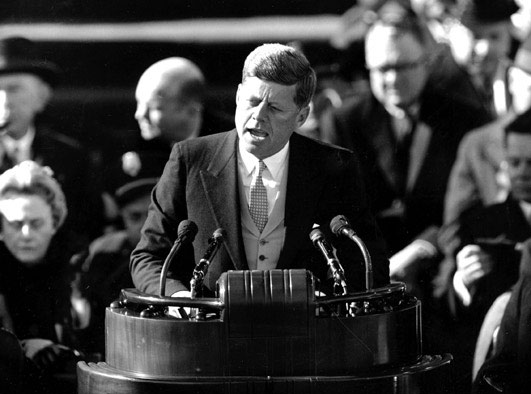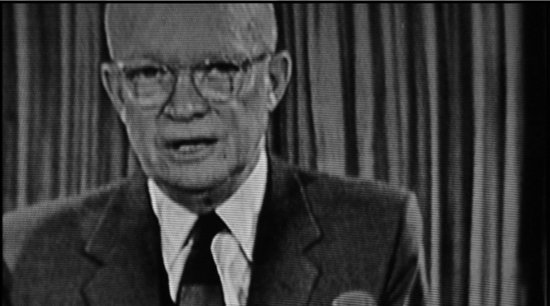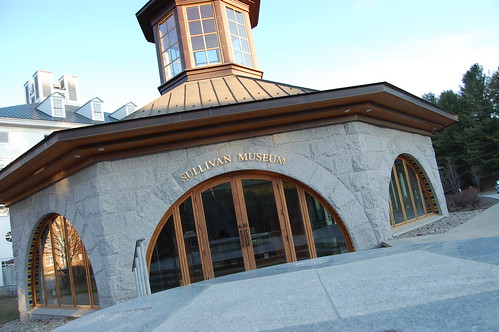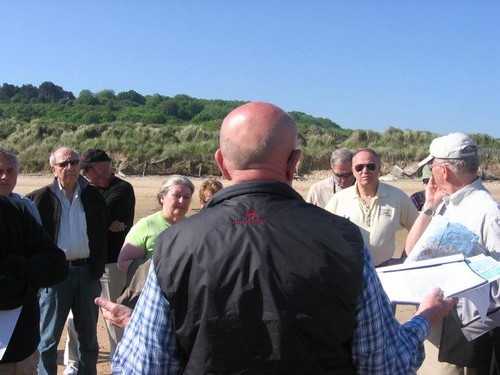Battlefield Doctor: Dr. Chris Coppola
/
Norwich University's Colby Military Writer's Symposium is an annual event that gathers military writers together in Northfield, where a series of panels and presentations help to educate the student body and general public on relevant and pressing matters in today's military. I've looked forward to the event each year, and once again, I've been impressed with the quality and information this year.
The first presentation of the symposium was held in the Kreitzberg Library's multipurpose room, featuring Dr. Chris Coppola, author of the book Coppola: A Pediatric Surgeon in Iraq, where he recounted his experiences as a surgeon in Iraq during his two deployments. In years past, where the symposium has discussed larger issues such as counterinsurgency doctrine or civilian interactions in the battlefield, this represented a bit of a departure, because it shed a bit of light on a major combat element: the casualties.
Dr. Coppola noted that the casualty infrastructure that has been put into place in Iraq during the invasion and subsequent occupation was an unprecedented one in the history of warfare. At any point in the country, a soldier or casualty was never more than twenty minutes from a hospital: once a soldier was injured, a helicopter was flown in to the scene, and the casualty was evacuated to a hospital system. A system had been put into place, with hospitals numbered with a certain level, which would allow for a certain amount of treatment. The wartime hospitals ranged from a level one to a level three center, which would allow doctors to treat and stabilize the wounded. For more serious cases, people were evacuated to Germany by plane, to level four hospitals, and eventually, to level five hospitals in the United States.
According to Dr. Coppola, this was a key element to saving lives on the battlefield. His hospital, he told us, had a survival rate of 98%: if people went in with a pulse, they had a very good chance of surviving their visit. The short trip after being wounded helped: this wasn't always the skill of the doctors there, (although with the internet, they had access to a lot of information and the cumulative experience of prior doctors), but the fact that a wounded soldier with serious injuries could be treated very quickly. Another factor, he noted, was new equipment, such as body armor and vehicles engineered to redirect blast energy if hit by an IED.
However, doctors faced new types of wounds in addition to bullets: blast wounds from explosives, were common, and resulted in numerous types of injuries. As Dr. Coppola said: anything on the body can be hurt. When he received his first patient in Iraq, he saw that he had to treat five of the most serious wounds that could be done to a person.
Civilians were another major problem that they faced, as his hospital received far more civilian casualties than they did US soldiers or even enemy combatants. This was compounded by a couple of problems: the Iraqi healthcare system was broken, with numerous doctors killed or known to have fled the country, as well as being behind the times. As a result, when word got out that there was a pediatric surgeon in the area, people began to bring their children to the hospital, where doctors worked to fix other long-standing issues, such as birth defects, injuries, and other problems that treatments simply weren't readily available for families. While the primary mission of the doctors was to treat soldiers to return to the battlefield or stabilize them for further treatment, doctors played to their strength and helped within their specialties.
One particular anecdote, Coppola recounted a story of where a known insurgent had been brought in, who had talked about killing former patients. It was an incredibly difficult thing to have to do, treating the person, but they followed through and fulfilled their mission: treating patients who came through the door. Undoubtedly, this will be an ethical question that doctors will continue to face in the future.
Coppola wrapped up by addressing the affects of warfare long after the battle is over. He acknowledged some of the problems in the system at home, in the treatment of soldiers after they have returned home. Despite the issues, he said, we owe them the care. A 20 year old amputee, he said, has a better chance of rehabilitation, and incredible advances are being made in post-injury treatment. Other problems might come up in the near future, long after we've left the battle: soldiers who are using legal drugs, such as energy drinks and sleeping pills, might have an increased risk of mental problems, with undesirable problems after the fact: there's been a rise in suicides, fratricides, and long standing problems such as Post Traumatic Stress Syndrome. That's a legacy of the war that we'll need to cope with, and learn to handle as the years move on.
Coppola's talk was an enlightening one: I have a feeling that it's something that should be seen by everyone, because of the graphic nature: it's a vivid demonstration of war's effects on the people fighting it, and the people unlucky enough to be in harm's way during the conflict. Coppola seemed optimistic, though, noting that where doctors had learned from their experiences, he learned from their experiences, and that he regularly consults on cases with doctors overseas, putting his own experiences to continued use.


 This week marks the 50th anniversary of two important speeches in recent United States history, President John F. Kennedy's Inauguration Speech on January 20th, 1961, and President Dwight Eisenhower's final farewell to the nation on January 17th. One reflects the honest assessment of a president unchained and free to speak, the other constrained by politics and optimism. In a large way, each speech speaks to one's supporters, but also to the base elements that helps define the right and the left in the United States, and in a very real way, provide an excellent primer on not only the environment of the Cold War, but also some of the roots of political speculative fiction and ideas that helped to define an generation and an art that they consumed.
This week marks the 50th anniversary of two important speeches in recent United States history, President John F. Kennedy's Inauguration Speech on January 20th, 1961, and President Dwight Eisenhower's final farewell to the nation on January 17th. One reflects the honest assessment of a president unchained and free to speak, the other constrained by politics and optimism. In a large way, each speech speaks to one's supporters, but also to the base elements that helps define the right and the left in the United States, and in a very real way, provide an excellent primer on not only the environment of the Cold War, but also some of the roots of political speculative fiction and ideas that helped to define an generation and an art that they consumed.




 I'm not voting for Brian Dubie today. I can't say that I'm terribly enthused for voting for his opponent, Peter Shumlin, because the prospect of a unified House, Senate and Governor in the state also isn't all that terribly appealing to me. However, that fear isn't outweighed by the fear of not a Republican in the office again, but by an incompetent one.
I'm not voting for Brian Dubie today. I can't say that I'm terribly enthused for voting for his opponent, Peter Shumlin, because the prospect of a unified House, Senate and Governor in the state also isn't all that terribly appealing to me. However, that fear isn't outweighed by the fear of not a Republican in the office again, but by an incompetent one.


 Earlier today, the former Chief of Staff of the U.S. Army, Gen. Gordon Sullivan, spoke at the museum at Norwich University's campus that bears his name for a brief talk to students. As he opened, he noted that he didn't have a plan for what he wanted to talk about, but pointed out objects in one of the rooms that related to his experience within the time that he had spent in the military. Over the course of his 36 year career, Sullivan has seen a lot: he volunteered to go to Vietnam and served for a couple of tours there, while his career culminated in his presiding over the transition of the U.S. Army after the fall of the Soviet Union, and the massive changes that came as a result of that. A number of points that Sullivan brought up stuck with me over the course of his talk.
Earlier today, the former Chief of Staff of the U.S. Army, Gen. Gordon Sullivan, spoke at the museum at Norwich University's campus that bears his name for a brief talk to students. As he opened, he noted that he didn't have a plan for what he wanted to talk about, but pointed out objects in one of the rooms that related to his experience within the time that he had spent in the military. Over the course of his 36 year career, Sullivan has seen a lot: he volunteered to go to Vietnam and served for a couple of tours there, while his career culminated in his presiding over the transition of the U.S. Army after the fall of the Soviet Union, and the massive changes that came as a result of that. A number of points that Sullivan brought up stuck with me over the course of his talk.





